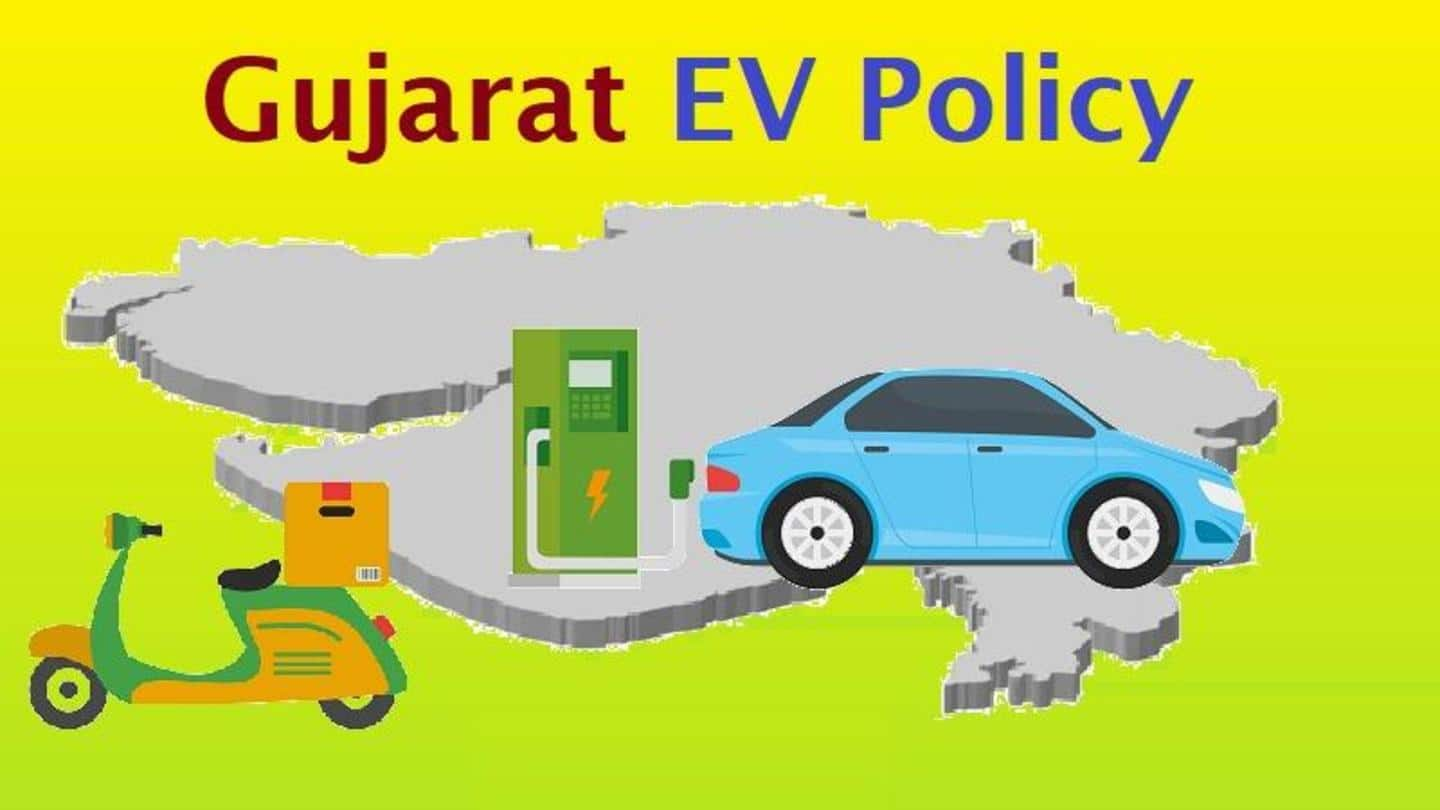
Everything you should know before buying an EV in Gujarat
What's the story
India's electric vehicle market is growing at an incredible rate. Government policies and incentives have played a huge part in driving this growth. Like several other state governments, Gujarat has its own Electric Vehicle policy that came to be in June 2021. The policy contains several subsidies and incentives to promote EVs and associated infrastructures. Let's have a look at its highlights.
Objective
The state aims to have 2 lakh EVs by 2025
The Gujarat Electric Vehicle policy was announced in 2021. It will be operational till 2025. The main objective of the policy is to have two lakh EVs in the state by 2025. It also aims to make Gujarat an EV manufacturing hub. The government has plans to encourage start-ups and investment in support sectors such as data analytics and information technology.
Challenges
The EV sector in Gujarat faces 3 issues
The Gujarat EV policy aims to tackle three issues faced by the sector in the state. To promote demand, the government has announced various subsidies and incentives. A lack of EV charging infrastructure is another problem faced by the sector. To solve this, the policy contains subsidies for infrastructure developers. Lastly, the government aims to increase the number of EV options by incentivizing manufacturers.
Subsidy
Battery capacity of the EV determines the subsidies
Incentives for EVs under the Gujarat EV policy are based on the battery capacity and the ex-showroom price of the vehicle. For two-wheelers, three-wheelers, and four-wheelers, state subsidy is earmarked at up to Rs. 20,000, Rs. 50,000, and Rs. 1.5 lakh, respectively. Meanwhile, the price caps of the vehicles are set at Rs. 1.5 lakh, Rs. 5 lakh, and Rs. 15 lakh, respectively.
Benefits
A 25% capital subsidy on machinery is available
The Gujarat EV policy provides incentives for developing charging infrastructure as well. The government will provide a 25% capital subsidy of up to Rs. 10 lakh on equipment/machinery for commercial public charging stations. These charging stations are also eligible for a 100% electric duty exemption. Additionally, DisComs will allow the charging of EVs from existing consumer connections at existing tariffs, except for agricultural connections.
Other incentives
The government will waive off registration fee for EVs
The Gujarat EV policy's incentives do not end there. To make purchasing an EV an attractive option, the government will waive off registration fee for EVs registered at RTOs. To develop the charging infrastructure, the government will let petrol bunks establish charging stations. Charging stations will not be limited to commercial establishments. Housing facilities will also have them.